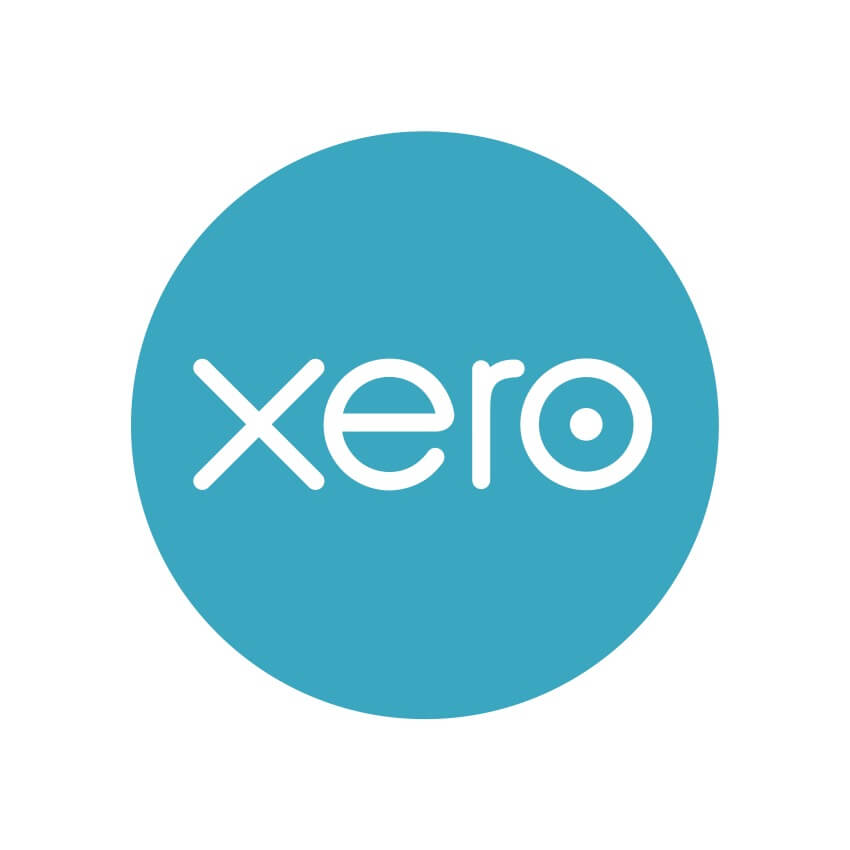
In today’s competitive staffing industry, the culture you cultivate within your agency directly impacts your ability to attract top talent, retain key employees, and provide superior service to your clients. While technical skills and efficient processes are essential, nothing drives success more than a high-performance culture built on leadership, collaboration, and continuous improvement. But what does it take to develop such a culture, and how can staffing agency leaders guide their teams toward excellence?
Here’s a glimpse into four key elements that can help foster a high-performance culture in your staffing agency:
1. Setting a Clear Vision and Mission
Successful staffing agencies don’t just exist to fill jobs; they are driven by a purpose that resonates with both their employees and clients. As a leader, your ability to define and articulate a clear vision and mission sets the tone for your team. A compelling vision isn’t just about revenue goals—it’s about the impact your agency wants to make in the industry and with the clients you serve.
Having a defined vision aligns everyone within the organization, creating a sense of shared purpose. This helps in decision-making and motivates the team to work toward long-term goals, rather than short-term gains.
How can you set this up in your agency? Explore how to craft and implement a compelling vision in the full course available in our member area.
2. Fostering Open Communication
In a high-performance culture, communication is a two-way street. Open and transparent communication channels create an environment where ideas can be exchanged freely, and concerns can be addressed without fear of retribution.
Leaders in staffing agencies need to encourage frequent communication—whether it’s providing feedback, giving recognition, or discussing challenges. This kind of openness fosters trust and collaboration across all levels of the organization, allowing for faster problem-solving and innovation.
Discover how to build an effective communication framework in the complete course available in our member area.
3. Empowering Your Employees
High-performing agencies understand the power of empowerment. When employees feel trusted to make decisions and take ownership of their roles, they perform at a higher level. Empowerment leads to greater accountability and drives personal investment in the success of the agency.
For staffing agencies, this means giving recruiters the autonomy to manage their client relationships, encouraging creative solutions for candidate sourcing, and providing the right tools and resources to support their work.
Learn actionable steps to empower your team and increase performance in our full course.
4. Creating a Recognition and Rewards Program
Recognition and rewards are essential for maintaining a motivated and engaged workforce. High-performance cultures celebrate achievements, no matter how small, and ensure employees feel valued for their contributions.
However, it’s not just about monetary rewards. Recognizing hard work in front of peers, offering professional development opportunities, or even providing flexible work arrangements can all serve as powerful motivators. The key is to create a program that aligns with your agency’s values and encourages behaviors that drive success.
Want to develop a tailored recognition and rewards program for your staffing agency? Dive deeper into the details with our complete course.
These four elements are just the beginning. To fully cultivate a high-performance culture within your staffing agency, leadership must be intentional about embedding these values across all levels of the organization.
For a comprehensive guide, take our full course "Cultivating a High-Performance Culture: Leadership Essentials for Staffing Agencies", available exclusively in our member area. In this course, we’ll break down every step you need to transform your agency culture, enhance team performance, and drive sustainable success.
Ready to elevate your leadership and your agency’s culture? Join the member area and get started today!

In today's competitive staffing landscape, it's not enough to rely on intuition or experience alone. To truly understand your agency's performance and identify opportunities for growth, you need to track key performance indicators (KPIs). By measuring and analyzing the right metrics, staffing agencies can make data-driven decisions that enhance efficiency, improve client and candidate satisfaction, and ultimately drive growth.
Here are 5 essential KPIs every staffing agency should be tracking:
1. Time-to-Fill
What is it?
Time-to-fill measures the average number of days it takes to fill a job vacancy from the moment it is posted to when a candidate accepts the offer.
Time-to-fill measures the average number of days it takes to fill a job vacancy from the moment it is posted to when a candidate accepts the offer.
Why it matters:
This metric reflects your agency's efficiency in sourcing, screening, and placing candidates. A shorter time-to-fill can lead to higher client satisfaction, as it minimizes disruptions in their operations. Conversely, a longer time-to-fill may indicate inefficiencies in your processes, such as a lack of qualified candidates in your pipeline or delays in communication with clients or candidates.
This metric reflects your agency's efficiency in sourcing, screening, and placing candidates. A shorter time-to-fill can lead to higher client satisfaction, as it minimizes disruptions in their operations. Conversely, a longer time-to-fill may indicate inefficiencies in your processes, such as a lack of qualified candidates in your pipeline or delays in communication with clients or candidates.
How to improve it:
- Streamline your recruitment process by automating repetitive tasks like resume screening.
- Build a robust talent pipeline with active and passive candidates ready to engage when opportunities arise.
- Enhance communication with clients to clarify job requirements and expectations early in the process.
2. Placement Success Rate
What is it?
Placement success rate is the percentage of candidates placed by your agency who remain in their roles for a predetermined period (e.g., 90 days, 6 months).
Placement success rate is the percentage of candidates placed by your agency who remain in their roles for a predetermined period (e.g., 90 days, 6 months).
Why it matters:
A high placement success rate indicates that your agency is effectively matching candidates with the right roles, leading to satisfied clients and candidates. A low rate may suggest issues with your screening process or misalignment between client needs and candidate qualifications.
A high placement success rate indicates that your agency is effectively matching candidates with the right roles, leading to satisfied clients and candidates. A low rate may suggest issues with your screening process or misalignment between client needs and candidate qualifications.
How to improve it:
- Conduct thorough needs assessments with clients to ensure a deep understanding of the role requirements.
- Enhance your screening process with behavioral interviews and skills assessments to match candidates more accurately.
- Implement regular check-ins with placed candidates and clients to address any potential issues early on.
3. Client Satisfaction Score
What is it?
Client satisfaction score measures the overall satisfaction of your clients with the services provided by your agency. This can be collected through surveys, feedback forms, or direct interviews.
Client satisfaction score measures the overall satisfaction of your clients with the services provided by your agency. This can be collected through surveys, feedback forms, or direct interviews.
Why it matters:
Happy clients are more likely to be repeat customers and provide referrals, which are essential for growth. Low client satisfaction can lead to churn and damage your agency's reputation in the market.
Happy clients are more likely to be repeat customers and provide referrals, which are essential for growth. Low client satisfaction can lead to churn and damage your agency's reputation in the market.
How to improve it:
- Foster strong relationships with clients by maintaining regular communication and providing consistent updates on recruitment progress.
- Respond promptly to any feedback or concerns raised by clients.
- Continuously evaluate and improve your service offerings based on client feedback to meet their evolving needs.
4. Gross Profit Margin per Placement
What is it?
Gross profit margin per placement calculates the profitability of each placement after subtracting direct costs (such as recruiter salaries and marketing expenses) from the fees charged to clients.
Gross profit margin per placement calculates the profitability of each placement after subtracting direct costs (such as recruiter salaries and marketing expenses) from the fees charged to clients.
Why it matters:
This metric helps you understand the financial health of your agency. A high gross profit margin indicates that your placements are generating substantial revenue relative to their cost, while a low margin may highlight inefficiencies or underpricing of your services.
This metric helps you understand the financial health of your agency. A high gross profit margin indicates that your placements are generating substantial revenue relative to their cost, while a low margin may highlight inefficiencies or underpricing of your services.
How to improve it:
- Optimize resource allocation by identifying and eliminating unnecessary costs in your recruitment process.
- Adjust your pricing model to ensure it reflects the value you provide, considering factors like candidate quality and speed of delivery.
- Leverage technology to reduce operational costs and improve recruiter productivity.
5. Candidate Net Promoter Score (NPS)
What is it?
Candidate Net Promoter Score (NPS) measures candidates' willingness to recommend your agency to others. It is calculated by asking candidates, "On a scale of 0-10, how likely are you to recommend our agency to a friend or colleague?"
Candidate Net Promoter Score (NPS) measures candidates' willingness to recommend your agency to others. It is calculated by asking candidates, "On a scale of 0-10, how likely are you to recommend our agency to a friend or colleague?"
Why it matters:
A high candidate NPS indicates positive candidate experiences, which can lead to more referrals and a stronger talent pipeline. A low NPS may signal issues in your recruitment process, such as lack of communication, poor candidate experience, or unmet expectations.
A high candidate NPS indicates positive candidate experiences, which can lead to more referrals and a stronger talent pipeline. A low NPS may signal issues in your recruitment process, such as lack of communication, poor candidate experience, or unmet expectations.
How to improve it:
- Enhance the candidate experience by providing timely feedback, clear communication, and personalized support throughout the hiring process.
- Solicit feedback regularly and act on it to address any pain points in your candidate journey.
- Show appreciation for candidates' time and effort, even if they are not selected for a role, to maintain a positive reputation in the talent market.
Tracking these five key metrics will provide valuable insights into your staffing agency's performance, helping you identify strengths and areas for improvement. By focusing on metrics like time-to-fill, placement success rate, client satisfaction, gross profit margin, and candidate NPS, you can make data-driven decisions that drive growth and ensure long-term success in a competitive industry.
Start monitoring these KPIs today and watch your agency thrive! And if you're looking for expert guidance on optimizing these metrics, consider booking a consultation to explore how our proven strategies can support your growth goals.

In the dynamic world of staffing, agencies face numerous challenges. While some risks are obvious, others can be hidden, lurking beneath the surface and potentially undermining your agency’s success.
Here are five hidden risks every staffing agency must be prepared to overcome:
- Compliance and Regulatory Risks
- Ever-Changing Regulations: Keeping up with constantly evolving labor laws and regulations can be daunting. Failure to comply can lead to legal issues and hefty fines.
- Solution: Implement a robust compliance management system and stay informed about regulatory changes. Regular training for staff on compliance matters is crucial.
- Candidate Shortages
- Talent Gaps: In many industries, especially healthcare, there is a significant shortage of qualified candidates. This can hinder your ability to meet client demands.
- Solution: Develop a strong talent pipeline through proactive recruitment strategies and maintain good relationships with candidates. Invest in training programs to upskill potential hires.
- Technological Challenges
- Outdated Systems: Relying on outdated technology can reduce efficiency and competitiveness. The right technology is essential for streamlining operations and improving service delivery.
- Solution: Regularly update your technology stack and invest in advanced staffing software and tools. Leveraging AI and data analytics can enhance your recruitment process and decision-making.
- Client Relationship Management
- Maintaining Client Satisfaction: Ensuring consistent client satisfaction can be challenging, especially with fluctuating demands and expectations.
- Solution: Implement a client relationship management (CRM) system to track interactions and feedback. Regularly engage with clients to understand their needs and address concerns promptly.
- Financial Stability
- Cash Flow Issues: Managing cash flow can be a hidden risk, especially when clients delay payments or when there are unexpected expenses.
- Solution: Implement effective financial management practices, including regular cash flow monitoring and having a contingency plan. Consider invoice factoring services to maintain steady cash flow.
Overcoming these hidden risks requires a proactive and strategic approach. By addressing these challenges head-on, staffing agencies can ensure sustainable growth and success in an increasingly competitive market.
At SBG Consulting, we specialize in helping staffing agencies navigate these risks through expert guidance and innovative solutions. Let us help you overcome these challenges and achieve your business goals. Contact us today to learn more.

Starting a staffing agency in today's competitive landscape is both exciting and challenging. As a new player in the staffing industry, it's crucial to ensure your startup is built on a solid foundation that addresses the specific needs and dynamics of this market.
To help you succeed, we've outlined seven critical questions every staffing industry startup must answer.
1. The Innovation Question:
How is your staffing solution uniquely innovative compared to existing services?
Innovation is key to standing out in the crowded staffing industry. Your startup should offer a significant improvement or unique twist on existing services. Whether it's through advanced technology, more efficient processes, or unique service offerings, your innovation will be the differentiating factor that attracts clients and candidates.
2. The Market Readiness Question:
Is the market ready for your staffing services now?
Timing can make or break your startup. Assess the current market demand for staffing solutions and ensure your services align with industry trends and employer needs. Conducting thorough market research will help you identify whether now is the right time to launch your staffing agency.
3. The Niche Domination Question:
Can you dominate a specific niche in the staffing industry before expanding?
Focus on capturing a large share of a small, specific market, such as healthcare staffing or IT staffing, before scaling to broader markets. Dominating a niche helps establish a strong foundation and credibility, making it easier to expand later on.
4. The Expertise Question:
Do you have a team with deep expertise and experience in the staffing industry?
Having a team with the right skills, industry knowledge, and network connections is crucial. Ensure your team members have complementary skills and a shared vision for the startup’s success. Their expertise will be vital in navigating the complexities of the staffing industry.
5. The Placement Strategy Question:
Do you have a clear and effective strategy for placing candidates and filling positions?
Develop a robust candidate sourcing, vetting, and placement strategy that ensures high-quality matches and satisfies both employers and job seekers. A well-defined placement strategy will enhance your agency's reputation and reliability.
6. The Sustainability Question:
How will your staffing agency remain competitive and sustainable over the long term?
Plan for the future by considering how your agency will adapt to changes in the job market, economic shifts, and advancements in technology. Building a sustainable business model that can withstand market fluctuations is essential for long-term success.
7. The Value Proposition Question:
What unique value does your staffing agency offer that others do not?
Identify and articulate the unique benefits and advantages of your services. Whether it's specialized industry knowledge, faster placement times, better candidate quality, or innovative technology solutions, your unique value proposition will be what sets you apart from competitors.
Starting a staffing agency is no small feat, but by addressing these seven critical questions, you can build a strong foundation for success. Innovation, market readiness, niche domination, expertise, clear placement strategies, sustainability, and a compelling value proposition are all key elements that will help your staffing startup thrive.
At SBG Consulting, we specialize in helping staffing startups navigate these challenges and achieve their goals. Whether you need guidance on market research, team building, or developing effective placement strategies, our expert consultants are here to support you every step of the way.
Ready to launch your staffing startup with confidence?
Contact us today to learn how we can help you answer these critical questions and build a successful staffing agency.








